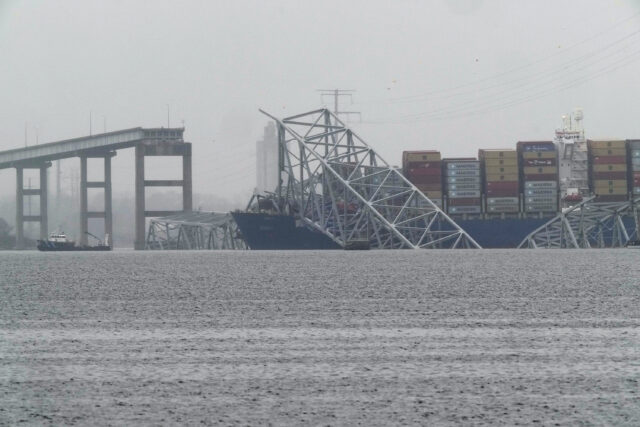A law from the 1850s promulgated after the sinking of the Titanic could just be the life preserver a British insurer needs following the recent Baltimore bridge incident, says a report in an insurance news website.
Insurancebusinessmag.com, a premier insurance news website, cited legal analysts as saying that Singapore-based Grace Ocean, owner of the large container ship Bali that collided with the structure, and its insurer Brittania P&I, might mitigate its financial liability using the relatively unknown law from the 19th century.
‘This legislation, which was notably employed by Titanic’s owners to limit financial losses following its 1912 disaster, could play a crucial role in the current situation,’ it said.
The collision with the bridge over the Patapsco River has led to severe transportation disruptions in the eastern United States and at least six deaths so far. Grace Ocean could be liable for damages amounting to hundreds of millions of dollars due to the chaos and destruction caused by the collision. Legal battles are expected to involve various parties, including the bridge operator and relatives of six individuals feared deceased in the accident.
Experts suggest that since the bridge was stationary, liability likely rests with Grace Ocean. However, an 1851 maritime law could limit the company’s financial responsibility to the post-accident value of the vessel and any freight revenue generated. This legal provision could significantly reduce Grace Ocean’s liability, potentially limiting it to tens of millions rather than the full cost of damages.
The insurance implications are also complex. Most global maritime cargo is insured through protection and indemnity clubs. Questions remain about the extent of coverage for the Dali incident and whether negligence or mechanical failure contributed to the accident. This could impact claims handling and insurance payouts.
Legal proceedings invoking the 1851 law are anticipated, with the potential to influence liability determinations and compensation. Some experts have drawn parallels to the 2012 Costa Concordia disaster’s $1.5 billion insurance loss, underscoring the substantial costs maritime accidents can incur.
Also See:
















